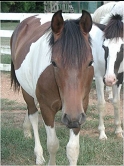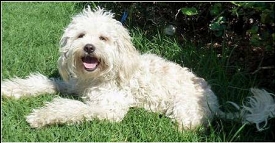

Copyright 2012

1. 175 breeds recognized by the American Kennel Club
2. Omnivores
3. Weigh 3-175 pounds
4. Group name is Pack
5. Related to wolves, foxes, and jackals
2. Omnivores
3. Weigh 3-175 pounds
4. Group name is Pack
5. Related to wolves, foxes, and jackals
How to take care of one:
- Feed dog every morning and every night
- Bath dog every month or sooner if needed
- Take the dog out for a walk giving it an opportunity to relieve itself 3 times a day
- Play with dog at least once a day
- Pet dog and show a lot of love and attention
- Bath dog every month or sooner if needed
- Take the dog out for a walk giving it an opportunity to relieve itself 3 times a day
- Play with dog at least once a day
- Pet dog and show a lot of love and attention


While they will learn to adapt to stable life, it is vital to exercise your horse to satisfy its physical needs. Before pasturing your horse, check the pasture for trash, holes in the fencing, and other hazards.
You must check for poisonous plants in your pasture weekly, at the very least. The most harmful plants are yew, deadly nightshade, ragwort, foxglove, buttercups, oak leaves and acorns, bracken, laurel, privet, meadow saffron, castor bean, locoweed, horsetail, star thistle, and sorghum.
Your pasture must be fenced, of course, to prevent your horse from escaping or being injured. Barbed wire is not recommended for horse fencing.
Your horse will require shelter to protect it from wind, rain, and the sun. A three-sided enclosure works the best. Make sure your shelter is large enough to enable all your horses to fit inside together, and build it so the back wall faces the prevailing wind.
Horses require a constant supply of fresh, clean water. If you plan to use a watering bucket, you must refill it at least twice daily and whenever it is empty.
Proper bedding is vital for horses kept in a barn or stable. Straw is a popular bedding choice because it is inexpensive, warm, and comfortable. Dust-free wood shavings are clean and hygienic. Hemp has become a popular bedding choice recently.
The stable must be cleaned daily. If your horse is stabled all day, it should be cleaned three times daily. To muck out the stable, you will remove any droppings with a shovel and wheelbarrow, and level the horse's bedding.
After you have removed the droppings, separate the soiled bedding from the still-clean bedding material. Sweep, and then clean the floor with a stable disinfectant. After the floor is dry, return the clean bedding to its place, then add fresh bedding material to make up for the removed soiled amount.
Your horse requires grooming daily to keep its coat healthy. However, don't over groom a horse that spends most or all of its time in the pasture.
Your pasture must be fenced, of course, to prevent your horse from escaping or being injured. Barbed wire is not recommended for horse fencing.
Your horse will require shelter to protect it from wind, rain, and the sun. A three-sided enclosure works the best. Make sure your shelter is large enough to enable all your horses to fit inside together, and build it so the back wall faces the prevailing wind.
Horses require a constant supply of fresh, clean water. If you plan to use a watering bucket, you must refill it at least twice daily and whenever it is empty.
Proper bedding is vital for horses kept in a barn or stable. Straw is a popular bedding choice because it is inexpensive, warm, and comfortable. Dust-free wood shavings are clean and hygienic. Hemp has become a popular bedding choice recently.
The stable must be cleaned daily. If your horse is stabled all day, it should be cleaned three times daily. To muck out the stable, you will remove any droppings with a shovel and wheelbarrow, and level the horse's bedding.
After you have removed the droppings, separate the soiled bedding from the still-clean bedding material. Sweep, and then clean the floor with a stable disinfectant. After the floor is dry, return the clean bedding to its place, then add fresh bedding material to make up for the removed soiled amount.
Your horse requires grooming daily to keep its coat healthy. However, don't over groom a horse that spends most or all of its time in the pasture.


Dogs
Cool Recipes
Cakes
Seasonal Snacks
Shakes & Smoothies
Cool Recipes
Fun Crafts
Cute & Fuzzy
Pets
Wild Animals
Cute & Fuzzy
Sewing
Art
Seasonal Crafts
Fun Crafts








